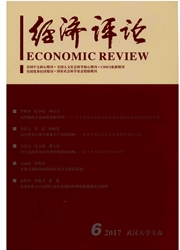

 中文摘要:
中文摘要:
本文利用2012年世界银行中国制造业企业调查数据,研究金融抑制对制造业企业融资渠道选择行为的影响。研究结果显示,金融抑制对制造业企业融资渠道选择具有显著影响,其中极大地提高了企业运营资本中非正规金融融资比例,降低了正规金融融资比例。对非正规金融融资组成分样本回归结果显示,金融抑制显著提高了非正规金融中商业信用以及非正式民间借贷比例。分样本分析结果显示,金融抑制具有“所有制歧视”特征,其中拥有外资、国企成分的企业在融资渠道选择上不受金融抑制影响;此外,金融抑制导致正规金融融资成本上升,使得企业选择非正规金融渠道进行融资,其中大型企业趋向于选择非正规金融中的商业信用进行融资,小型企业选择非正规金融中的民间信贷进行融资,中型企业则是选择两种融资渠道,这体现了金融抑制的“规模歧视”特征。
 英文摘要:
英文摘要:
Based on the 2012 World Bank survey on China' s manufacturing enterprises, this paper analyzes how financial repression affects manufacturing enterprises' financing behavior. We find that: financial repression has a significant effect on the choices of enterprises' financing channel and it has a positive effect on informal finance but a negative effect on formal finance. The financial repression significantly improves the commercial credit and the informal private loan ratio, but this mechanism doesn' t work on enterprises with foreign or state shares, which indicates the " ownership discrimination" characteristic of financial repression in China. In addition, financial repression leads to the rise of formal finance financing costs which makes enterprises chose informal finance channel to financing. The larger enterprises tend to choose the commercial credit to financing and the smaller enterprises tend to choose the informal private loan, mediumsized enterprises tend to choose both , which further indicates "scale discrimination" characteristic of financial repression.
 同期刊论文项目
同期刊论文项目
 同项目期刊论文
同项目期刊论文
 期刊信息
期刊信息
